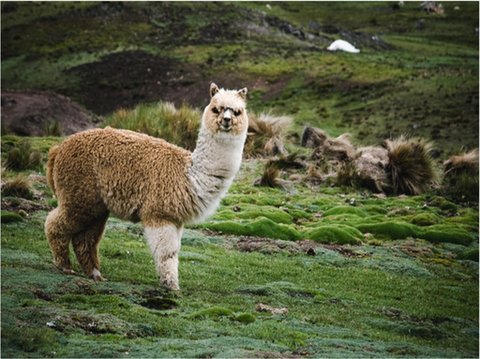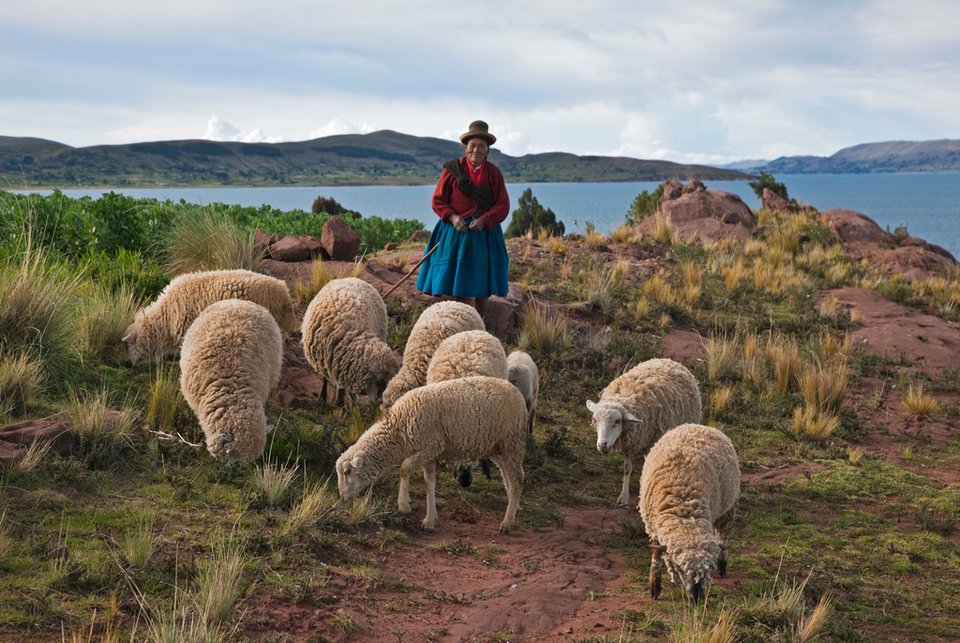
EveryoneinPunohelpsraiseanimals,like sheep.
Fieldwork
Whenyouworkasalinguist,itisimportanttodofieldwork.Thismeansgoingtoplacestohearpeoplespeak.InPuno,Idoactual“field” work.Iherdsheepandalpacas.Iplantandharvestcrops.IworkwiththepeopleIamstudying.Thisway,Icanlistentotheir words.

alpaca



AwomanherdsherflockofsheepnearLake Titicaca.
CollectingTalk
Ialsointerviewpeople.Iaskthemtosaythingsintomyrecorder.Later,Istudytheserecordingstounderstandhowthepeopleare speaking.
Peopletellmeabouttheirlives.Thishelpsmetogettoknow them.

womeninPuno, Peru


Aymara:
Wali luphiwa
(wa-li lu-pee-wa)
English:
Itisreally sunny.
CelebratingLife
Thepeopleherelookforwaystocelebratelife.Iaminvitedtoaplay.Thisisanotherchanceformetolistentotheir languages.
Asalways,Ilistenclosely.Ihadhopedtohearanewlanguage,butIdonot.That’sokay.Ilearnedabouthowthepeoplein Punolive.Ialsolearnedabouttheirwonderful words.

Actorspretendtobethemanandwomanwhofounded Puno.


Quechua:
Tupananchiskama
(tu-pa-naan-chis-ka-ma)
English:
Seeyou later!
GULF OF MEXICO
ATLANTIC
OCEAN
NORTH AMERICA
GUATEMALA
Santiaguito Complex
CARIBBEAN SEA
PACIFIC
OCEAN
SOUTH
AMERICA